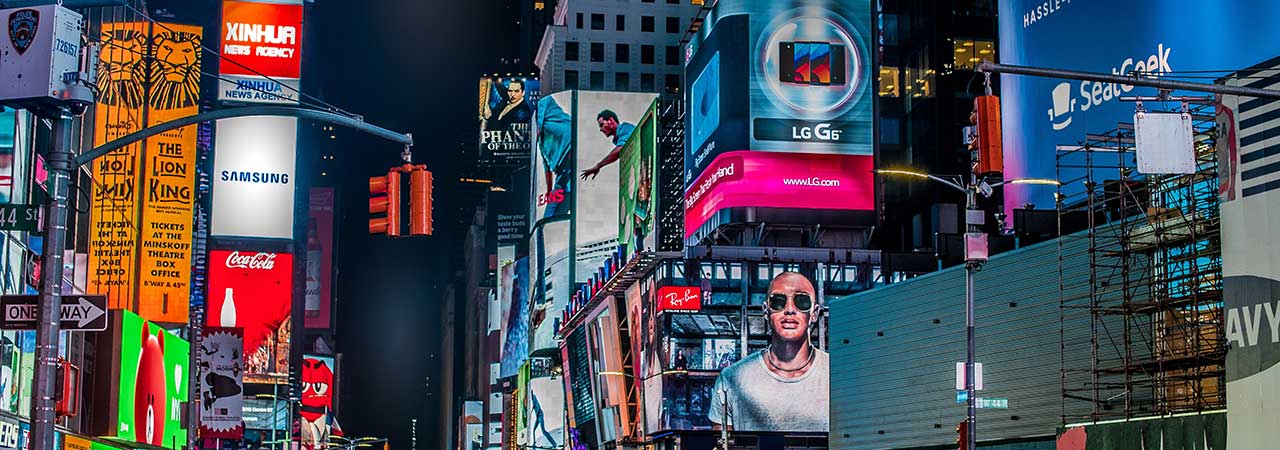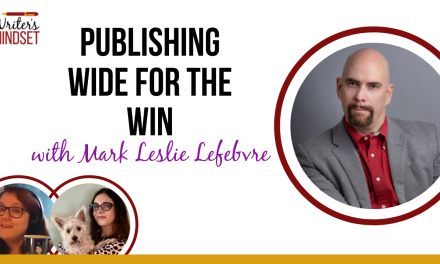There are so many marketing terms out there it can be difficult to keep up.
Marketing websites throw them around, assuming you know what they mean. If you don’t, you have to trawl the internet to find the definition you want. Even then, you’ve got to get your head around it. Sometimes that’s easier said than done.
Just a few years ago, most of these terms made no sense to me.
So that you don’t have to go through what I did, I’ve compiled a list of every marketing term you’ll ever need to know.
The list is alphabetised to make it easy to search, but some terms will make more sense when you’ve read the related terms, too.
If you think there’s something missing, please let me know in the comments and I’ll add it to the list.
Marketing terms every writer needs to know
- +1
- Algorithm
- Blog
- Black Hat SEO
- Bounce Rate
- Boosted Post
- Comments
- Conversion
- Conversion Copywriting
- CPC
- CTA (Call to Action)
- CTR (Click Through Rate)
- DA (Domain Authority)
- Domain Name
- Evergreen Content
- Facebook Pixel
- Facebook Ad
- Facebook Live
- Funnel
- Google Analytics
- Hashtag
- Hosted Website
- Impressions/Reach
- Interactions/Social Actions
- Keyword
- Keyword Stuffing
- KPI (Key Performance Indicators)
- Landing Page
- Lead
- Lead Generation
- Lead Magnet
- Likes
- Mention
- Meta Data
- Moment
- Newsfeed
- Organic Reach
- Paid Reach
- Panda
- PPC
- Penguin
- Print Media
- Promoted Post
- RankBrain
- Reactions
- Retweets
- ROI (Return on Investment)
- Shares
- Social Media
- Self-Hosted Website
- SEO (Search Engine Optimisation)
- SERP (Search Engine Results Page)
- Target Audience
- Timeline
- Traditional Media
- UTM Parameter
- Wall
- White Hat SEO
- WordPress.com
- WordPress.org
+1
The Google+ equivalent of a Like.
Algorithm
How Facebook, LinkedIn, and sometimes Twitter work out what kinds of posts you want to see. The more you use the sites, the more intelligent the algorithms become. The more other people like, comment, or share with a post, the more likely you are to see it.
Black Hat SEO
Using tactics Google and other search engines don’t approve of to increase your SERPs.
See also: SEO, white hat SEO.
Blog
A type of website where you can share posts on whatever you like. They’re usually run by a person or small group of people.
Posts should always be called blog posts, not simply blogs. The blog is the name for the site as a whole.
‘Blog’ is short for ‘weblog’, which itself is an abbreviation of ‘world wide web + log’.
Bounce Rate
The percentage of people who leave your site after visiting a single page. The lower the bounce rate, the better.
Boosted Post
A Facebook post where you pay to increase its reach.
See also: Facebook ad.
Comments
A written response to a social media post, or a blog post.
Conversion
When someone takes an action on your site, such as signing up to your mailing list or purchasing a book
Conversion Copywriting
Copywriting that aims to convince users to take action (convert) on a website.
CPC (Cost Per Click)
Another name for PPC.
CTA (Call to Action)
What do you want your reader to do? This is the direction you point them in once you’ve given them what they want. It could be a sign up to your mailing list, or a link to buy your book.
CTR (Click Through Rate)
The percentage of people who click on a link.
DA (Domain Authority)
A score of 1-100 of a website’s authority, given by Moz. The higher the score, the more authoritative the website. The higher up your score, the harder it is the get to the next ranking.
Domain Name
What users type in to get to your website, such as www.writerscookbook.com.
Evergreen Content
Like an evergreen tree, evergreen content never grows old. It can bring in new visitors to your site for months or years after it’s published.
Facebook Ad
A paid advert on Facebook. Any post that says ‘Sponsored’ underneath it is a Facebook ad.
See also: Boosted post
Facebook Pixel
A code you place on your website to track sales that find your website through a Facebook ad.
Facebook Live
A live video streamed through Facebook. Can be done via any device with a camera. To stream using a professional camera requires some faffing about.
Funnel
The steps a user is guided through to make a conversion and become a customer.
Google Analytics
The most popular—and one of the most comprehensive—software to track visits to your website.
Hashtag
A word or phrase proceeded by a hash (#). They’re used to link posts on common themes or topics, such as #amwriting. They began on Twitter, but are now used on most social networks. Their effectiveness varies from social network to social network.
Hosted Website
Websites that are hosted on other people’s sites. You focus on the content, they do the maintenance. You get the added benefit of a boost from their domain authority.
Impressions/Reach
How many people see your post in their newsfeed/timeline on social media. Twitter calls it impressions; Facebook calls it reach.
Interactions/Social Actions
Any sort of interaction with a post—likes, shares, comments, link clicks, etc. Called interactions on everything but LinkedIn, where it’s referred to as a ‘social action’.
Keyword
A word or phrase that sums up your blog post. It’s then used for search engines to work out what pages and search terms to rank your page/website for.
Keyword Stuffing
Including a keyword so many times in a page or blog post that it seems unnatural. This may result in a penalty from search engines.
KPI (Key Performance Indicators)
A way of measuring how effective a particular activity is at helping you to reach your goals. This is more of a business term, but can be used in marketing contexts, too.
Landing Page
Either a) the page a user lands on when they visit your website, or b) a page designed to collect leads.
Lead
Someone who performs a conversion, or shows interest in your product. For example, someone who signs up to your mailing list.
Lead Generation
Ways of getting a user’s attention so that they become a lead. A lead magnet is one way to do this. An effective call to action is another.
Lead Magnet
The honey to attract a lead. This could come in the form of an ebook, a checklist, a free sample of your book, etc.
Likes
A way of showing approval on Facebook, Twitter, Instagram, or LinkedIn.
Mention
When someone references you—and links to your profile—on social media, particularly on Twitter. Twitter has a ‘Mentions’ option under ‘Notifications’ that allows you to filter through your notifications and only see your mentions.
Meta Data
Information that visitors to your site won’t be able to see (unless they view your source code), but that search engines and social networks can use to find out what your post is about. These include the title, a brief description, and an image. Other information such as the post author can also be included but isn’t displayed by most places.
Moment
A series of tweets on a particular topic, linked together.
Newsfeed
Where you see all the posts from your friends, and any pages/people you’ve followed, on Facebook.
Organic Reach
Reach on a search engine or social network that is earned through other people interacting with your content. You do not pay for this.
Paid Reach
Reach that you get by paying for it.
Panda
An update to the Google algorithm that filters out poor-quality pages.
Penguin
An update to the Google algorithm that filters out sites it thinks may be buying links in order to increase its SERPs.
PPC (Pay Per Click)
Paid advertising on search engines. The advertiser is only charged when a user clicks on the ad. They’re not charged for each time the ad is displayed.
Print Media
Magazines, newspapers, etc.
Promoted Post
An advert on Twitter.
RankBrain
According to Search Engine Land, RankBrain is “RankBrain is Google’s name for a machine-learning artificial intelligence system that’s used to help process its search results, as was reported by Bloomberg and also confirmed to us by Google.”
Reactions
Facebook’s extended list of ways to show your feelings towards a post. They include: Like, Love, Wow, Haha, Sad, Angry. They occasionally have additional ones for special occasions such as Mother’s Day or Pride Month.
Retweets
A share on Twitter.
ROI (Return on Investment)
How much have you made compared to what you spent? The higher the return on investment, the more effective the marketing channel.
Shares
When someone shares their post to their friends/followers on a social network. This has the highest weighting in algorithms.
Social Media
A website where users can post their thoughts and feelings and share them with their network, which usually consists of friends and (sometimes) family. It can also go further than that.
For a break down of the different social networks and a look at which are most useful to you as a writer, visit my Social Media for Writers guide.
Self-Hosted Website
A website where you are responsible for everything: the content, design, maintenance, etc. This is a lot more work—and often more expensive—than hosted websites, but it does give you considerably more control.
SEO (Search Engine Optimisation)
Making a website more search-engine-friendly so that it receives a higher SERP and therefore a higher CTR, too. People who work in this industry are often called SEOs.
SERP (Search Engine Results Page)
What comes up when you look for something on a search engine.
Target Audience
The people your content is aimed at. The narrower your target audience, the easier it is to write.
Timeline
The part of your Facebook profile where all of your posts—and anything you’re tagged in—appears.
Traditional Media
The old-fashioned way of marketing, where you attract a customer’s attention and they come to you. Magazine and newspaper ads, radio ads, and TV ads all come under this banner. TV advertising is still thought to be one of the most effective.
UTM Parameter
An addition to a URL that allows you to track the source of a visit to your website. It’s broken up into Campaign, Medium, and Source.
Wall
The old name for your Facebook Timeline.
White Hat SEO
Tactics Google and other search engines approve of.
WordPress.com
An example of a hosted website.
WordPress.org
Where you can download WordPress in order to host it yourself. (The Writer’s Cookbook is WordPress.org.)








